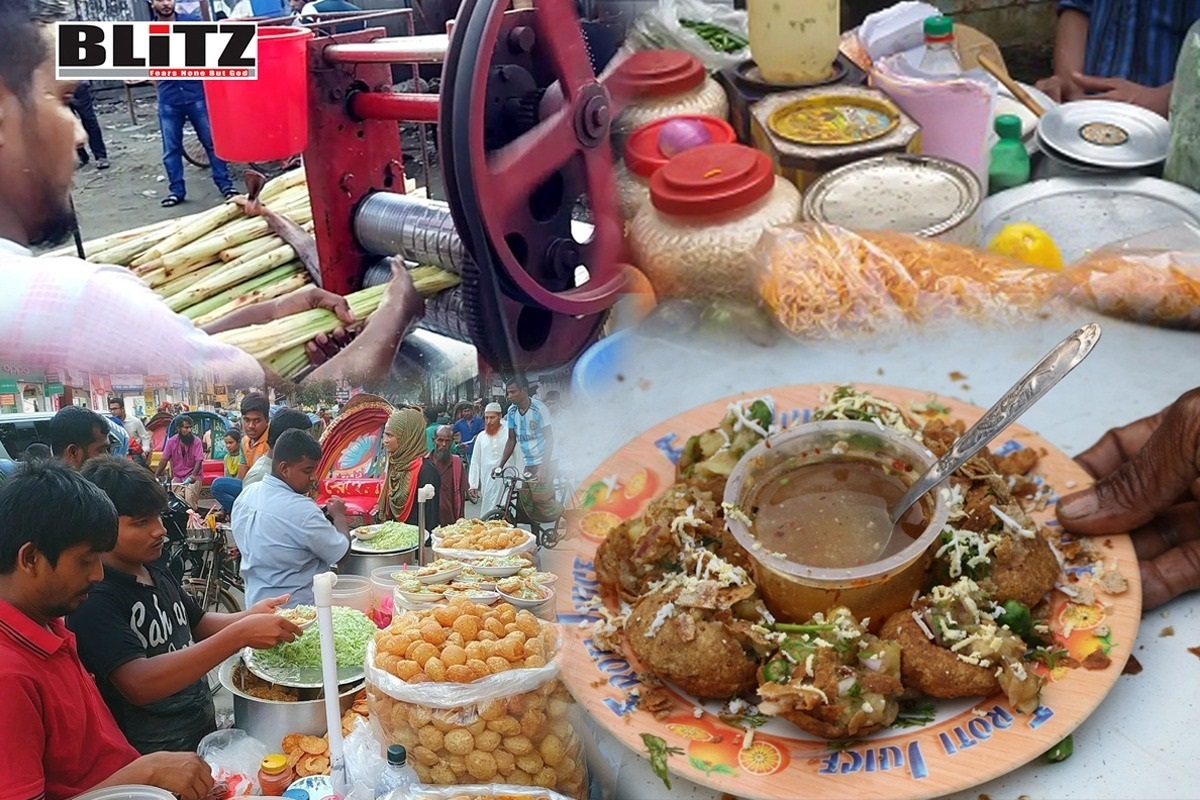High levels of diarrheal pathogens found in popular street foods in Bangladesh
- Update Time : Monday, June 10, 2024

In a recent government-backed study, it has been discovered that at least six popular types of street foods in Dhaka, including chatpati and sugarcane juice, are contaminated with high levels of bacteria responsible for causing diarrhea and other stomach-related illnesses. The Bangladesh Food Safety Authority (BFSA) sponsored this significant study, and the findings were disclosed at a seminar held on the premises of the organization this past Sunday.
Dr. Md Latiful Bari, the chief scientist at the Food and Nutrition Research Laboratory of the University of Dhaka, presented the results. According to Dr. Bari, the study was a comprehensive investigation into the safety of street foods, a staple for many residents in the bustling capital city of Bangladesh. The foods examined were found to harbor various harmful bacteria that pose health risks to consumers.
Despite the alarming presence of these pathogens, the study also uncovered a paradoxical finding: only a maximum of four individuals out of every 10,000 who consume these contaminated street foods are falling ill. This discovery raised questions about why the infection rates are relatively low despite the high contamination levels.
Dr. Bari explained that the bacteria identified in the street foods are well-known pathogens that can cause severe gastrointestinal diseases. These include Escherichia coli, Salmonella spp., and Shigella spp., all of which are notorious for their roles in causing diarrhea. Furthermore, the study also detected the presence of Staphylococcus aureus, a bacterium that can lead to food poisoning, and Vibrio cholerae, the causative agent of cholera, a severe diarrheal disease.
“People are getting infected, but surprisingly are not falling sick,” Dr. Bari remarked during the seminar. This observation led to discussions about the possible reasons behind such a phenomenon. One hypothesis suggests that a certain level of immunity might have developed among the regular consumers of these street foods. Another possibility is that the low dosage of bacteria in each serving might not be enough to trigger noticeable symptoms in the majority of individuals.
Despite this unexpected finding, the potential health risks cannot be ignored. Dr. Bari emphasized the importance of improving food safety practices among street vendors. He suggested that the relative immunity observed in some consumers should not lead to complacency in addressing the root cause of the problem.
To mitigate the risk of bacterial contamination in street foods, Dr. Bari stressed the need for adequate hygiene training for street food vendors. Many vendors operate with limited resources and lack proper knowledge about safe food handling practices. This gap in knowledge and resources often leads to unsafe food preparation and storage methods, which in turn increases the risk of bacterial contamination.
The study recommended that the BFSA should implement regular monitoring and inspection of street food vendors to ensure compliance with food safety standards. This could include periodic health checks for vendors, sanitation audits of their food preparation areas, and the provision of clean water and facilities for proper handwashing.
Furthermore, Dr. Bari suggested that public awareness campaigns are essential to educate both vendors and consumers about the importance of food safety. Consumers should be informed about the potential risks of consuming contaminated street foods and be encouraged to seek out vendors who adhere to good hygiene practices.
In conclusion, while the study revealed a relatively low incidence of illness from contaminated street foods in Dhaka, the presence of harmful bacteria remains a significant public health concern. To protect public health, it is crucial to address the underlying causes of contamination through improved hygiene practices, regular monitoring, and comprehensive public education. The BFSA and other relevant authorities must take proactive steps to ensure that the street foods enjoyed by so many can be consumed safely, without fear of illness.











